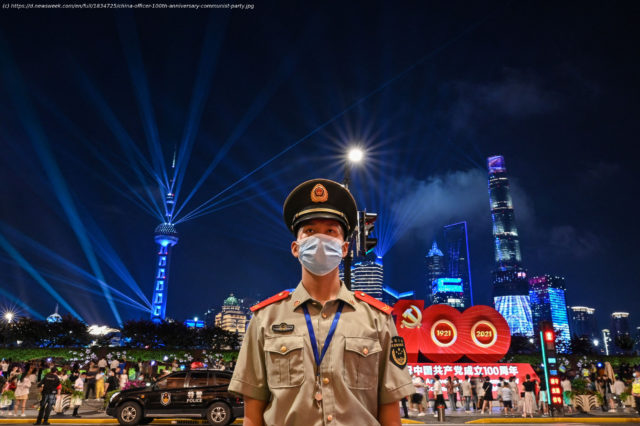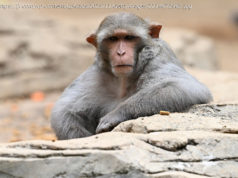In the span of one fateful century, a brief stretch for one of the oldest civilizations on the planet, the Chinese Communist Party has evolved from an intellectual guerilla movement to a titan that
In the span of one fateful century, a brief stretch for one of the oldest civilizations on the planet, the Chinese Communist Party has evolved from an intellectual guerilla movement of a few doven revolutionaries to a 95-million-strong titan that commands the world’s largest standing army and soon-to-be top economy. As the 100-year milestone passes Thursday, the Chinese Communist Party celebrates the arduous road to success, while reflecting on substantial challenges both past and present, while looking ahead to a future that offers cause for both excitement and anxiety. Uncertainty abounds as the United States and the Western world challenge Beijing to an extent not seen since the demise of Mao Zedong, the revolutionary founder of the People’s Republic. Mao’s eventual successor, Deng Xiaoping, who came to power at roughly the halfway mark in the history of the People’s Republic, recalibrated China’s hardline approach to one that embraced globalism and a market economy that would eventually enrich the country. Today, Chinese President Xi Jinping has defined his own take on «socialism with Chinese characteristics» as he presided over the centennial in a testament to the country’s achievements and an acknowledgment of its challenges. «In contrast to Americans, Chinese experienced the 20th century as tumultuous and harrowing,» Susan A. Thornton, a retired U.S. diplomat with over three decades of experience at the U.S. State Department in Eurasia and East Asia, told Newsweek. «Part of that tumult was, of course, owing to CCP policies, and is captured for Chinese these days in the 70% right-30% wrong formula Deng Xiaoping attributed to Mao’s leadership,» Thornton said. «By the measure of most (not all—see Tibetans, Uighurs) of China’s 1.4 billion citizens, though, the CCP’s accomplishments are obvious and worthy of marking.» Thornton, who is a fellow at Yale Law School’s Paul Tsai China Center and the Brooking Institution’s John L. Thornton China Center, identified the driving factors behind China’s rise as «economic growth, internal stability and consensus behind national priorities, growing international influence and growing technological and military prowess.» She also attributed this ascendance to «a ruthless prioritization and focus, reforms to free up extensive capital and labor reserves amid market forces, subordination of other goals enabled by political repression, willingness to engage with and learn from others, leapfrog and corner-cutting advantages, hard work and sacrifice in the present for the sake of the future.» The prospects of this future are by no means guaranteed, however. And as the pomp and circumstance of the centennial drew to a close, that uncertainty is likely the focus of Xi and his top cadre. «Not all these factors can be counted on to continue, and China’s society, economy and security environment are all becoming more complicated and difficult to manage,» Thornton said. «Whether the Chinese Communist Party can adapt fast enough to ‘keep up with the times’ is the question that keeps Chinese leaders up at night.» While China has navigated the COVID-19 pandemic with unrivaled success and its growing GDP continues to narrow the gap with the U.S., the accompanying downturn in relations with Washington and other major powers has aggravated key areas of contention such as allegations of mass human rights violations and territorial disputes. Xi issued a staunch message Thursday, however, to those seeking to coerce changes in China’s policies. He recalled China’s imperial past and the ravages of colonial powers in its latter days, and warned no such attempts would be tolerated today. «We will never allow any foreign force to bully, oppress, or subjugate us,» Xi said. «Anyone who would attempt to do so will find themselves on a collision course with a great wall of steel forged by over 1.4 billion Chinese people.» The original Mandarin-language version warned aggressors would » face broken heads and bloodshed » should they take on the nation and its people. To ensure China’s physical defense, Xi has set out in recent years to reform the People’s Liberation Army into a «world-class» military by the middle of this century. Mass investments have enabled China to pull ahead of the U.S. in certain fields such as naval ship-building and defensive and offensive missile systems, developments that the Pentagon is keenly watching as it sets out to maintain its sizable lead in military might. Xi reiterated the necessity of accelerating China’s military modernization during his centenary remarks delivered Thursday at Tiananmen Square. He called the People’s Liberation Army «a strong pillar for safeguarding our socialist country and preserving national dignity, and a powerful force for protecting peace in our region and beyond.» But Thornton said there was far more to the conversation than military power. «I wouldn’t say that the challenge China poses to the U.S. is mainly a military one,» Thornton said. «PLA modernization was actually suppressed in China for a long time, as priority went to economic development. National identity is a key driver of China’s rise, and it is also a key aspect of the U.S. response to China’s rise.» The issue of national identity in China has become particularly controversial, as Washington and a growing chorus of its allies have accused Beijing of «genocide» in its establishment of vocational education and training centers to detain up to a million Uighur Muslims residing in the officially atheist state. U.S. officials have likened centers to concentration camps. Chinese officials have fiercely denied the allegations, and have accused the U.S. of attempting to foster separatist disunity with the People’s Republic. They have also attempted to highlight race-based issues and other societal woes plaguing the U.S. But even as Washington and Beijing appear as far apart as ever, Thornton felt there was a need to find ways to bridge the gap for the sake of the international community in which both countries play leading roles. «As for coexistence, I don’t think we have much choice,» she said. «The question is how to do it in a way that leads to a more, not less, stable world.» The perils of the alternative know no bounds, and voices from both the U.S. and China have highlighted the risks of the two countries failing to find common ground. Beijing has particularly emphasized the need for cooperation in a bilateral relationship Washington has acknowledged as the most important of its kind. «China is committed to developing a relationship with the U.S. featuring non-conflict, non-confrontation, mutual respect and win-win cooperation,» Liu Pengyu, spokesperson for the Chinese embassy in Washington, told Newsweek.
Домой
United States
USA — Science How China's Communists Came to Lead World's Largest Army, Soon Economy, in...






